-
Courses

Courses
Choosing a course is one of the most important decisions you'll ever make! View our courses and see what our students and lecturers have to say about the courses you are interested in at the links below.
-
University Life

University Life
Each year more than 4,000 choose University of Galway as their University of choice. Find out what life at University of Galway is all about here.
-
About University of Galway

About University of Galway
Since 1845, University of Galway has been sharing the highest quality teaching and research with Ireland and the world. Find out what makes our University so special – from our distinguished history to the latest news and campus developments.
-
Colleges & Schools

Colleges & Schools
University of Galway has earned international recognition as a research-led university with a commitment to top quality teaching across a range of key areas of expertise.
-
Research & Innovation

Research & Innovation
University of Galway’s vibrant research community take on some of the most pressing challenges of our times.
-
Business & Industry

Guiding Breakthrough Research at University of Galway
We explore and facilitate commercial opportunities for the research community at University of Galway, as well as facilitating industry partnership.
-
Alumni & Friends

Alumni & Friends
There are 128,000 University of Galway alumni worldwide. Stay connected to your alumni community! Join our social networks and update your details online.
-
Community Engagement

Community Engagement
At University of Galway, we believe that the best learning takes place when you apply what you learn in a real world context. That's why many of our courses include work placements or community projects.
News and Events
Discipline of Philosophy Speakers Series presents
Dōgen’s Negative Ocularcentrism by Adam Loughnane (University College Cork)
Time: Thursday 27th November 2025 @ 1:00-2:30 pm (Lunch will be provided)
Location: The River Room (AS203)
Abstract: Scholars have long identified a tendency within the Western intellectual tradition known as ocularcentrism—the overdetermination of philosophy by the metaphysics of vision. While critics have warned of the “hegemony of the visual” (Jay, McMahan, Levin), I argue that the real danger lies not in the privileging of sight over other senses, but in the latent positivism that visual metaphor entails. The problem, I propose, is not ocularcentrism per se, but positivist ocularcentrism. As a counterpoint, I turn to the Buddhist philosopher Dōgen, who also privileges vision, yet in a radically different key—what I call “negative ocularcentrism”. Dōgen subverts the representational model of vision by embracing blindness, opacity, invisibility, and darkness as constitutive dimensions of the visual. His thought thus transforms seeing into a complex site of negation and depth rather than simple clarity and presence. I conclude by tracing how this form of negative ocularcentrism resonates in phenomenology and modern science.
Book Launch: The Fidelity of Reason: A Phenomenological Metaphysics of Self, Nature and Divinity (Springer 2025)
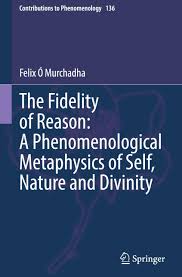
You are very warmly invited to the launch of this new book by Felix Ó Murchadha of the Discipline of Philosophy.
It will take place on Wednesday 12th November 2025 beginning at 5:30 pm in the Hardiman Building G011.
The book will be launched by William Desmond, Emeritus Professor, of Philosophy KU Leuven and visiting Professor at Villanova University.
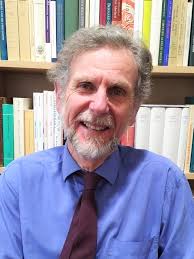
This book reveals a phenomenological metaphysics, which places it at the cutting edge of contemporary work on phenomenology. It addresses the crisis of world that is all around us as the meaning structures relating to self, nature and divinity all seem to be undermined politically and socially within the current reality of climatic, geo-political and ideology turmoil. In addressing these issues, this text argues for a renewed understanding of reason as a fidelity to world understood as faithfulness to the being and value of self, nature and divinity.
Discipline of Philosophy Speakers Series presents
“World” in Günther Anders’ early thought: Epistemology, Anthropology, Phenomenology by
Daria-Leona Mac Award (Paderborn University, Germany)
Time: Tuesday 7th October 2025 @ 1-2:30 pm
Location: AS203 River Room
Abstract: I would like to take this opportunity to give an insight into Günther Anders’ work, that emphasizes his phenomenological roots, and the theoretical work which was later overshadowed, not only by World War II and exile, but also by his own doing: His main focus remained the same for decades. The dangers of technology, especially the nuclear complex. I will take statements from his dissertation, his anthropological writings as well as his epistemological analysis of experience. I will begin with some of his quotes and aspects regarding “world”, but to give a more nuanced and accurate account, I compare his concept of world to his notion and description of nature. For this, I take into consideration one of his early works from, namely Über das Naturtreffen (Encountering Nature (my transl.)1928). How can World be defined and contrasted to Nature? Based on this comparison, I would like to define the concept of world along with some characteristics it exhibits according to Anders. I think this could be another aspect worth a discussion.
Discipline of Philosophy Speakers Series presents
“Simone Weil in an Age of Inattention” (online presentation) by
Prof. Kate Lawson (University of King’s College, Halifax (Canada)
Time: Thursday 18th September 2025 @ 1-2:30 pm (Lunch will be provided)
Location: THB G011
Abstract: Our current age has aptly been labelled a “grind culture,” which demands a continual reliance on our technology and necessitates that people carry cell phones, check computers, and remain available to both work and social obligations through all hours of the day and night. This constant surface-level attention serves to distract from the deeper spiritual and ethical possibilities of attention suggested by 20th century Parisian philosopher Simone Weil. This talk will examine the concept of Weilian attention and how it leads to Weil’s distinct process of decreation, then onto ethics, and political action.
Discipline of Philosophy Speakers Series presents:
“Plumbing the Surfaces: Susan Sontag as Philosopher of Art and Film”
by Dr. Patrick O'Connor (University of Staffordshire)
Time: Tuesday 25th February 2025 @ 1-2:30 pm (Lunch will be provided)
Location: Bridge Room, Hardiman Building
Abstract: Susan Sontag’s intellectual legacy is often celebrated for its incisive artistic
commentary, cultural criticism and literary contributions, yet her work has received relatively
little attention as a cohesive body of philosophical thought. This paper argues that Sontag
should be understood not only as a critic and essayist but as a thinker with significant
contributions to the philosophy of art and film. By situating Sontag within the traditions of
aesthetic and philosophical inquiry, this paper aims to illuminate as well as critically evaluate
her distinct contributions to the philosophy of art and film. It contends that her insights remain
vital for on the role of criticism, the phenomenology of perception, and the transformative
potential of various artistic mediums. Her essays on aesthetics, particularly in Against
Interpretation (1961), On Style (1966) On Photography (1977), articulate a philosophy rooted
in phenomenological attentiveness and advocacy for what she termed an "erotics of art." This
approach challenges theoretical abstraction, interpretative overreach and extols experiential
engagement, emphasizing art’s capacity to reveal sensuous immediacy as a form of thinking
in its own right. This talk will also discuss Sontag’s engagement with cinema as a focused
case study to explore her broader aesthetic philosophy. Essays such as "Film and Theatre,"
"Godard", "The Imagination of Disaster", alongside the later "The Decay of Cinema" all
illustrate a nascent theory of film as a temporal art.
Discipline of Philosophy Speakers Series presents:
"Nietzsche's critical engagement with Staël” by Dr. Rebecca Bamford (Queens University Belfast)
Time: Tuesday 14th January @ 1-2:30 pm (Lunch will be provided)
Location: Bridge Room, Hardiman Building
Abstract: Nietzsche’s remarks about the philosopher Germaine de Staël present a puzzle, which I aim to examine and to resolve in this paper. In several of his published and unpublished works, and especially in Beyond Good and Evil, Nietzsche makes some highly critical remarks about Staël. My aim in this paper is to investigate three interlinked issues: (i) who exactly is the ‘Staël’ featured in this text; (ii) how we are to explain the remarks that are directed towards Staël, and (iii) why Staël is discussed by Nietzsche here at all. I will lay out an account of what Nietzsche claims about Staël in Beyond Good and Evil, and will compare this with Nietzsche's wider references to Staël in others of his writings. I will then consider three potential explanations for Nietzsche's critical engagement with Staël: (1) that Nietzsche’s claims are indicative purely of his misogyny towards the historical figure of Staël (e.g. Diethe 1996); (2) that Nietzsche is highlighting and responding to a specific problem concerning Enlightenment values as a part of his project of translating humanity back into nature (e.g. Lemm 2020); (3) that from an Enlightenment perspective, Nietzsche’s claims about Staël are misogynistic, but his remarks need not be deemed so from a possible perspective in which humanity has been translated back into nature. I will propose that a combination of these first and third potential explanations is the most defensible interpretative approach.
Expanding the Inclusive Campus, Knowledge Power and Neurodiversity
We are pleased to invite you to Expanding the Inclusive Campus, Knowledge Power and Neurodiversity taking place this Friday May 03 from 12.30-3.30pm in G011, or online via zoom.
This even is part of our EDI project Belonging Unpacked which was a collaboration between staff from philosophy and ND Soc.
You can see more about the project here: https://belongingunpacked.wordpress.com/
This interactive hybrid workshop on implicit bias and systemic concerns relating to the neurodivergent experience in society and on campus, as part of a collaborative project on neurodivergent students’ experience between the School of History and Philosophy, NDSoc and Disability Services. Discussion and facilitated reflection will be stimulated by guest speakers Robert Chapman (Empire of Normality, 2023) and Ian Kidd (The Routledge Handbook of Epistemic Injustice, 2017) introducing considerations on bias, epistemic and systemic injustice, followed by reflections on neurodivergent students’ experience. (The project is co-funded by the EDI Office and Philosophy.)
Participation is welcome from all interested undergraduate and post-graduate students.
Please register to attend either in person or online, via the following form:
Mapping Attention: Yesterday, Today and Tomorrow.
International Conference and Pre-conference workshop: 17th-19th April 2024
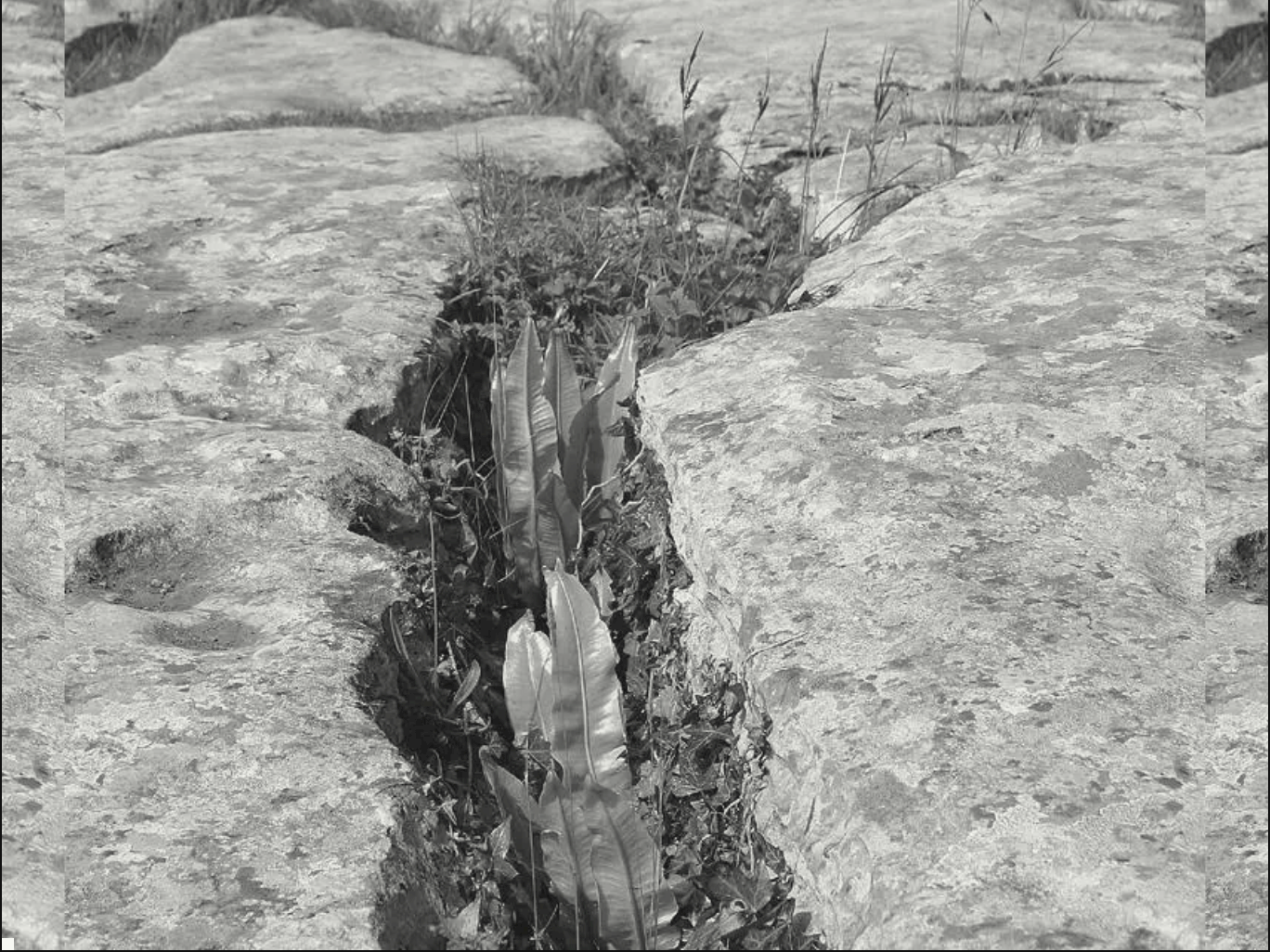
On April 18th and 19th the discipline of philosophy within the School of History and Philosophy will welcome scholars to present their research on attention in theory and in practice.
About: Against the backdrop 'attention economy' where our ability to attend is often overtaken by technology, post-modern fixations with self-optimisation, or the demands of work, this conference explores how we think about, radically reorient and develop our abilities to attend to the world to others. Join us for this conference where scholars interested in theorising and practising attention will come together to explore the theoretical language we use to talk and think about attending, the practices through which attention might be developed and those that benefit (other humans, non-human animals and the wider world) once we develop and grow this human capacity.
Keynote Speakers: Silvia Panizza (ITA/IRE) Megan Laverty (USA) Nora Ward (IRE) This conference is part of the second phase of the research project AIRE Attentive Inquiry Reclaiming Environment which is funded by the IRC New Foundations Award.
About the research project: AIRE means ATTENTION and CARE in Irish. This project uses philosophical dialogue to explore how we care for and about others, ourselves and the environment through a facilitated reading group, an international conference, and commissioned art, and an archival exhibition.
2023 is the 60th anniversary of the novel The Unicorn by Iris Murdoch. Set in a fictionalised vision of the Burren, a unique landscape in the West of Ireland, this beautiful book explores love, loss, guilt and isolation. The themes of this book will be investigated by two philosophical reading groups, and Murdoch's account of attention will be explored through an international conference and an exhibition. To register for the conference click here: https://forms.office.com/e/Ld3dBt4zQa
Pre-Conference Workshop:
On April 17th Facilitators from the Strother School of Radical Attention will deliver an Attention Lab on campus for post-graduate students, researchers, conference participants, local creatives and staff.
This workshop which comprises of guided attention practices and group discussion will be an opportunity to think about attention and knowledge production, an urgent issue for post-graduate students seeking to make a contribution to knowledge and/or those working creatively.
This event is supported by the University of Galway Post-graduate Research Environment funding.
To register for the AttentionLab, email: lucy.elvis@universityofgalway.ie
Deadline extended: Offence Given and Offence Taken
Offence Given and Offence Taken – A one-and-a-half-day workshop at the University of Galway in partnership with the Irish Philosophical Society supported by the University of Galway College of Arts Social Sciences and Celtic Studies Research Development Grant.
Offence is an increasingly prevalent social phenomenon that has received little philosophical analysis. To be offended or to take offence can have significant social power and incur severe professional and personal consequences. While a wide array of utterances, actions, creative outputs and personal beliefs are spoken of as sources of offence, spaces to meaningfully dialogue what offence may mean, discuss, respond to and handle potentially offensive content and how to identify spaces where offence ought to be avoided are few. To offend or be offended is an idea that has moved from the sphere of manners and social mores towards a tension-filled space in which neither the offended nor the offender are satisfied and understanding of offence itself is often not reached.
This in-person one-and-a-half-day workshop will take place at the University of Galway on Thursday 30th and Friday 31st of May 2024.
In the interests of stimulating discussion, papers will be circulated to participants beforehand.
Accepted speakers should expect to engage in all three sessions, but should submit their work under one of the following strands:
Offence and Creativity
- Knowledge creation: how does the potential for offence curtail pedagogical innovation and/or limit the use of certain examples in the classroom?
- Creative practice: how does the potential for offence limit creative practice in relation to representing the experience of others and limiting what can be said?
- Engagement with art: should the opinions and actions of an artist impact where, when and how their work is received?
Offence and Belief
- How can the belief systems we adopt make us more apt to being offended?
- On what grounds can beliefs held by others be deemed offensive?
- How can we communicate meaningfully across belief systems?
Offence and Silence
- How does the potential to offend, the assumption of offence, and the fear of offence work to propagate silence around sensitive issues?
- Does ‘taking offence’ on behalf of another silence those others?
- How should we treat complaints of being silenced that are made by questionable actors?
Submission requirements:
Please submit an anonymised, extended abstract of between 750 and 1000 words in length excluding references and a separate file detailing your: name, a brief biography (150 words) and institutional affiliation to: offenceworkshop24@gmail.com with a subject line detailing which thematic strand you are responding to.
Those participating in the workshop should be members of the Irish Philosophical Society.
A small number of postgraduate stipends, funded by the Irish Philosophical Society are available. If you are a postgraduate student (MA or PhD) and wish your submission to be considered for a stipend, please include the thematic strand and the term PG stipend in your email subject line (i.e. Offence and Creativity PG stipend)
Key dates:
- Deadline for submissions of extended abstracts: 19th February - Friday March 1st
- Notification of acceptance: 22nd March
- Deadline for completed papers word count 3000-3500 words: 22nd April
Registration open: The Future as a Present Concern Online 2021 NUIG – IPS – BSP
Six exceptional keynotes and around 70 speakers. Registration open now for the online international conference 1–3 September 2021 + 9 days catch-up.
Online international conference between the National University of Ireland Galway / Ollscoil Na hÉireann Gaillimh, The Irish Philosophical Society / Cumann Fealsúnachta Na Héireann, and the British Society for Phenomenology.
This conference explores the question of the future from phenomenological and other philosophical perspectives. There will be papers on various aspects of this question, whether ontological, ethical, aesthetical, epistemological, and in relation to political theory, gender theory, critical race theory, ecology, philosophy of religion, philosophy of science, and analytic philosophy.
THE FUTURE AS A PRESENT CONCERN | NUIG – IPS – BSP | ONLINE INTERNATIONAL CONFERENCE | 1-3 SEPTEMBER 2021
Invited Speakers:
- Prof. Andrew Benjamin (Distinguished Professor of Architectural Theory at the University of Technology, Sydney; Emeritus Professor of Philosophy and Jewish Thought at Monash University): "Future as Suspension"
- Prof. Rebecca Braun (Executive Dean of the College of Arts, Social Sciences & Celtic Studies, NUIG; Director of the Institute for Social Futures, Lancaster University 2017-2020): "Literary Futures: What Fiction can Tell Policy Makers"
- Prof. Shaun Gallagher (Lillian and Morrie Moss Professor of Philosophy, The University of Memphis; Professorial Fellow, SOLA, University of Wollongong): "The Future As Action"
- Fiona Hallinan (Artist, researcher, and co-founder of the Department of Ultimology; PhD student at LUCA School of Arts, KU Leuven, Ghent, Belgium): "On Ultimology, or the study of endings"
- Prof. Sara Heinämaa (Professor of Philosophy, Academy Professor 2017–2021, Department of Social Sciences and Philosophy, University of Jyväskylä, Finland): "Phenomenology as Vocation: A Project Instituted by the Will for a Future"
- Dr Alessandro Salice (Lecturer in Philosophy, Department of Philosophy, University College Cork, Ireland): "Realist Phenomenology: A Plaidoyer"
Theme:
So much human emotion, thought, and action is orientated to the future. Hopes and fears, plans and strategies, promises and interventions, derive their meaning from future intentions. However, as philosophers from Aristotle to Heidegger have pointed out, the future is that which is not yet. The future does not exist, tomorrow never comes. Therefore, the question arises as to how we should understand the future. Is the future simply non-being at the limits of the present? If so, does the present have any real connection with a putative future that does not yet exist? The founder of phenomenology, Edmund Husserl, in tackling such questions stressed the future as an aspect of the present. In his terms, each present consciousness is characterized by protention, in other words, the anticipation of a future not as actively planned or envisaged but as passively expected. The present is not an abstract moment but a flow of past and future intentional directions.
This conference seeks to contribute to understanding the future as a present concern both with respect to the underlying issues of temporal orientation and the pressing questions of today as we face into an increasingly uncertain future.
Conference format:
The conference will take place on a dedicated online conference platform with video, Zoom, and chat forums accessible only by registered participants. Invited speakers will be streamed live over Zoom and will include time for managed Q&As. Panel speaker presentations will be pre-recorded videos of 20 minutes with Q&As via a chat forum. The event will be scheduled according to a timetable over the three days of the conference; after that the conference platform will remain open for 9 days so everyone will be able to see everything they wish and rewatch and discuss presentations over an extended period. Check out the feedback for the 2020 online conference to see what participants thought of this setup.
Conference fees:
- Free to members of the BSP and IPS.
- Non-members of the IPS and BSP can become members by either joining the BSP or joining the IPS during the registration process.
Find out more:
The Future as a Present Concern Online 2021 NUIG – IPS – BSP
.png)


Blackstone Innovation Award 2018
Congratulations to the team from our Philosophical Dialogue Project on winning the Blackstone Innovation Award 2018 for their social innovation project in P4C.
IYPA 2018
Pupils from Sciol Iognaid 6th class took an entry to the Irish Young Philosopher's Awards Festival at UCD guided by facilitators from the Philosophical Dialogue Project.
World Philosophy Day 2017
PhD students Lucy Elvis and Annie McKeown O'Donovan were invited to a special reception at Áras an Uachtaráin to celebrate World Philosophy Day 2017 with 6th class students from Galway City who participated in our P4C in-school pilot.
Explore Project Funding 2017
Students and staff from NUIG Philosophy won the Explore grant to design and deliver Ireland's first Philosophy Summer Camp.
World Bioethics Day (19th October, 2016)
There will be a one-day symposium on Irish Bioethics on the above date from 10.00-16.15 in the Seminar Room 203 (the original Moore Institute seminar room), NUI Galway. To register (free, but limited numbers), or for further information, please go to: www. unescobioethicsireland.eu or contact oliver.feeney@nuigalway.ie
Culture Within Dialogue East-West
11th November, 2016 will see an International Conference on Cross-Cultural Philosophy coming to NUIGalway on 11 November, 2016. Venue: The Hardiman Building, Moore Institute Seminar Room, G011. Further information can be got at "International Research Group for Culture and Dialogue" www.irccd.org
Seminar on Poetry and Philosophy
You are cordially invited to above Seminar on Wednesday 25th May 2016 from 2-4 pm in Hardiman Building G011, NUIGalway.
Speakers: Prof. William Desmond (KU Leuven): "Poetic Porosity and Astonished Prayer: On the Poetics of Sean O'Riordain" and Prof. Felix O Murchadha (NUIG) "Gerald Manley Hopkins: Nature and Emotion". All Welcome
Symposium
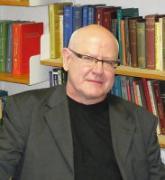
We are pleased to invite participation in a one day symposium on Paul Crowther's Aesthetics - to be held at the National University of Ireland, Galway; May 12, 2016.
There is no fee to attend this sympsoium and all are welcome. To register your interest or with any queries please email crowthersymposium 16@gmail.com
This programme and further details about the symposium can be found at https://crowtherspymposium16.wordpress.com/
Research Seminar

The Moore Institute and the Discipline of Philosophy are pleased to invite you to the following Research Seminar:
"Idea, Multiplicity, Reflection, Merleau-Ponty's Radical Concepts"
By Prof. Dorothea Olkowski, University of Colorado
Date: Tuesday, 12th April, 2016: Time: 4pm: Venue: The Hardiman Research Building, G011 Seminar Room.
PUBLIC LECTURE
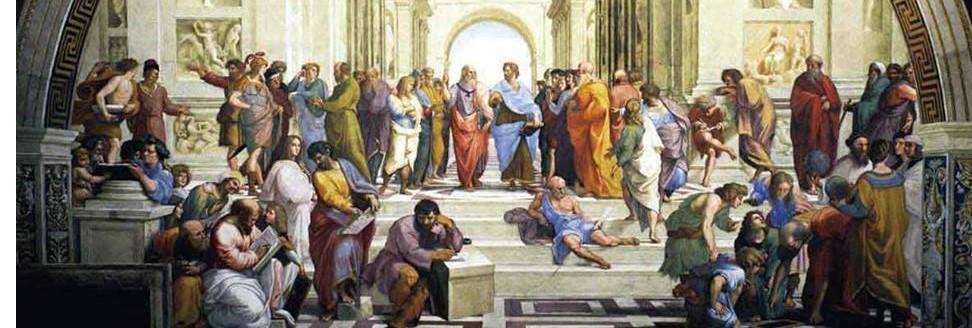
The discipline of Philosophy is delighted to welcome Professor Jonathan Wolff to NUI, Galway as part of the President of Ireland's Ethics Initiative. He will deliver a public lecture on 'Social Equality and Poverty' to which you are warmly invited.
Date: Friday 10th October, 2014
Time: 4pm
Venue: Aula Maxima Lower
Nietzsche Symposium at NUI, Galway
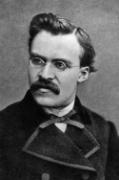 The Galway Nietzsche Symposium is a one-day event that brings together academics and advanced graduate students working on Nietzsche from John Cabot University Rome, NUI Galway and University College Cork.
The Galway Nietzsche Symposium is a one-day event that brings together academics and advanced graduate students working on Nietzsche from John Cabot University Rome, NUI Galway and University College Cork.
Date: 30th October, 2015
Time: 10-30-5.00
Venue: THB-G011 Seminar Room, James Hardiman Building
Please see the following link for further information:
Symposium: 29th February at 12.30 - 5.30pm. in G011 Hardiman Research Building on the Phenomenology of Theatre and Film. All Welcome.
Previous International Workshop: Kant and Nietzsche: Religion, 19th March 2014 at following link.
Conceptions of Causality and Freedom in the History of Metaphysics - Graduate Workshop - 2nd April, 2014
Philosophy Seminar Series 2015/2016
Ronan Powell will present a paper on "Pierre Hadot's Philosophy as a Way of Life: A Critique" on Monday 18th January, 2016 in Tom Duddy Seminar Room Philosophy Building, 19 Distillery Road at 3pm. All Welcome.
Lucy Elvis will present a paper 'On "Good" Buildings, the question of Architecture and Ethos' on Monday 1st February, 2016 at 3pm in Tom Duddy Seminar Room, Philosophy Building, 19 Distillery Road at 3pm. All Welcome.
Annie McKeown O'Donovan will present a paper on 'Acts, omissions and assisted suicide: some reflections on the Marie Fleming case' on Monday 15th February, 2016 at 3pm in Tom Duddy Seminar Room, Philosophy Building, 19 Distillery Road at 3pm. ALL WELCOME
Michael Hardiman will present a paper on "Hannah Arendt and the banality of human evil" on Thursday 3rd March 2016 at 2pm in Tom Duddy Seminar Room, Philosophy Buidling, 19 Distillery Road. All Welcome
Donna Maguire will present a paper on Deliberation: A Vehicle for Progress? on Monday March 7th at 3pm in Tom Duddy Seminar Room, Philosophy Building, 19 Distillery Road, Galway. All Welcome
Kathy Rooney will present a paper on 'Epistemic Injustice: An Analysis' on Monday March 14th, 2016 at 3pm in Tom Duddy Seminar Room, Philosophy Building, 19 Distillery Road, Galway. All Welcome
Aideen Clayton will present a paper on 'Are we distracted from leading a virtuous life? Reflections on the works of Gabriel Marcel' on Monday 4th April, 2016 at 3pm in the Tom Duddy Seminar Room , Philosophy Building, 19 Distillery Road, Galway. All Welcome.
Greg Crowley will present a paper on Derrida and Husserl "The Impossibility of a Naked Thought" on Monday 11th April, in the Tom Duddy Seminar Room, Philosophy Building,19 Distillery Road, at 3pm. All Welcome.




















